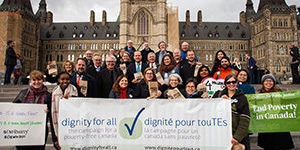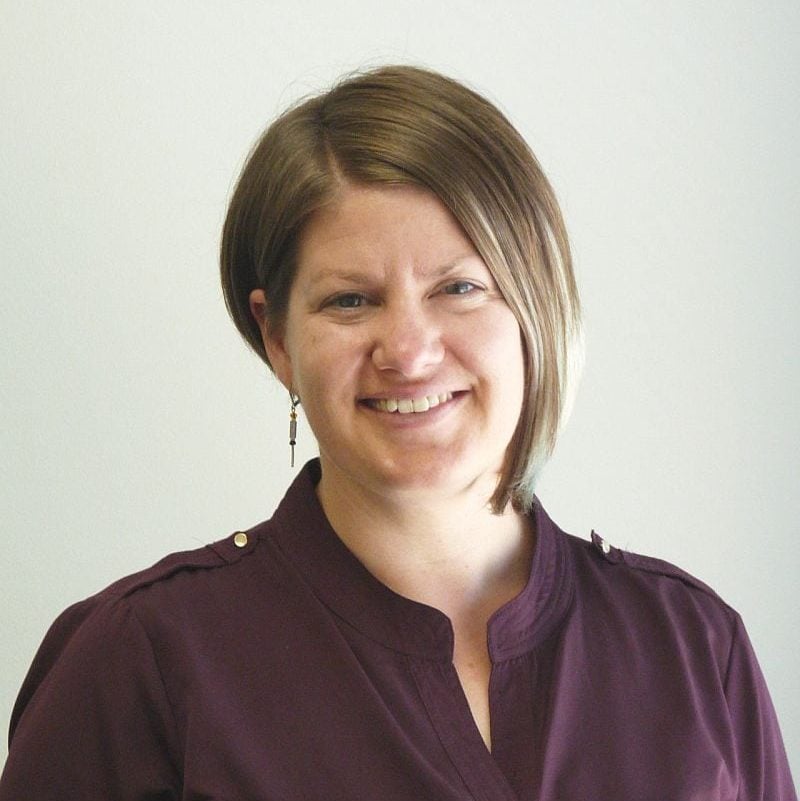For much of my journey of faith, walking in the way of Christ was discussed largely on the individual level (i.e. your personal relationship with Christ). Several years ago, however, I began exploring a more communal vision of our calling and witness. I was also engaging more with social justice issues and was learning to take a more systems approach to change. In both my faith and the pursuit of social justice, I began to see the power of the collective. And perhaps more importantly, I became more aware of those ahead of me who were already well into the work.
Discovering CPJ was a tremendous encouragement for me. Until then, I had little experience with the collective pursuit of social justice as an outworking of faith. Through my experiences with CPJ and subsequent work with housing advocates on the Legislating the Right to Housing Campaign, I have grown more and more convinced of the need for the church to come together in pursuit a shared vision: a world that reflects the heart of God in its honouring of all creation, its justice, compassion, unity, and in its diversity. I have also grown more convinced that this is not just the work of the church; we do not have ownership over this vision, nor should we go about our work in a proprietary way. This is true not just for differences within the church but also for those outside the church. This vision is bigger than us, and the work is certainly beyond our capacity – though we mustn’t let ourselves off the hook by thinking we have no part in it!
As we await the upcoming federal election, I’d like to encourage us individually and collectively to consider how we might strengthen our witness by collaborating with those we might consider “unusual suspects.” For example, I believe there is a shift happening amongst Evangelical circles that I had long been a part of that signals a return to the social gospel that many Mainline Protestant, Catholic, and Orthodox churches have historically taught and practiced, but who may find their capacity waning. At the same time, Evangelicals could greatly benefit from the wisdom and experience of those who have been engaging in this work for centuries. How might we foster greater connection and collaboration within our communities both within and outside “the church” to strengthen our collective agency to bring about the change we want to see in our world?
Change takes both well-placed individuals with influence and a mass of ordinary citizens willing to keep those in power accountable. It takes researchers, people with lived and learned expertise, and policymakers to draft and refine strategies, laws, and mechanisms. But unless those outside the inner circles are paying attention, asking questions, and bringing news from the frontlines, it can all get a bit abstract, prescriptive and dehumanized.
While staying informed is important, I think the most important thing we can do as citizens is to make sure our elected officials (and candidates) know what we care about – even if we don’t have all the solutions. We may not know or agree on exactly what should be done to address these issues, but at the very least we can come together to get them on the table. One of the taglines I enjoyed most on the right to housing front was “We know you support the right to housing. Does your MP?”
I often wonder (aloud, ideally when speaking to a group of Christians) what it would be like if every Christian across Canada asked their candidates what they planned to do to eradicate poverty in Canada; to ensure everyone had a safe, accessible place to live; to welcome those fleeing persecution, war, or disaster into a life of equal opportunity for a hopeful future; to protect and nurture our environment and put us on a path to sustainability?
What if Christians were willing to collaborate with others outside “the church” who share our concerns about these issues? What if people could see through our priorities and pursuits a shared vision for a world in which all people and all creation can flourish in peace, justice, and unity? I think only then will the church itself reflect the heart of God.




